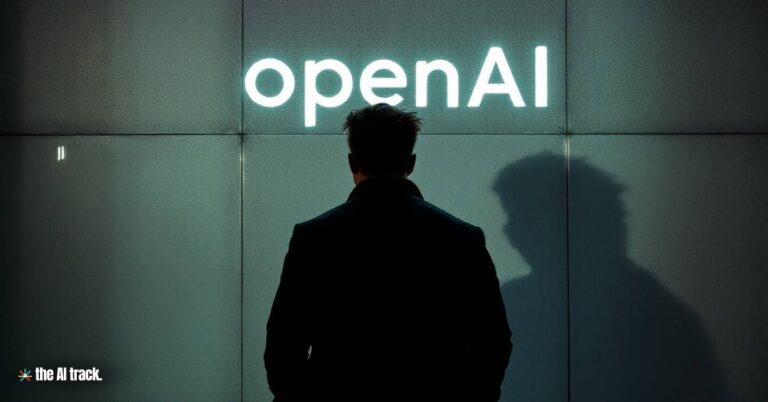OpenAI hits back at Elon Musk’s ongoing legal actions, publishing a series of emails and texts on Friday that it claims dismantle Musk’s accusations as misleading. At the core of Musk’s legal battle is the assertion that OpenAI has abandoned its founding mission to operate as a nonprofit dedicated to making AI research widely accessible.
OpenAI counters that Musk’s allegations are baseless and inconsistent with his own prior actions, characterizing the lawsuit as a case of “sour grapes.”

OpenAI Hits Back at Elon Musk’s Lawsuit – Key Points
Musk’s Early Role and Ambitions
- Initial Vision (2015): OpenAI hits back at Elon Musk’s legal actions by releasing emails that reveal that Musk himself proposed a hybrid nonprofit-for-profit structure early in the organization’s formation, citing funding concerns.
- Push for Control (2017): Musk demanded between 50%-60% equity and unequivocal authority over OpenAI, proposing a governance model that would name him CEO.
- Rejected Proposals: Musk registered “Open Artificial Intelligence Technologies, Inc.” as a public benefit corporation in 2017, but his plan to integrate this with OpenAI was rejected. He also suggested:
- Merging OpenAI with Tesla’s AI operations, allocating $1 billion for its expansion.
- Pivoting into hardware-focused AI development in partnership with chipmaker Cerebras.
Musk’s Departure and the Formation of xAI
- Resignation (2018): Frustrated by OpenAI leadership’s refusal to cede control, Musk resigned from the board and severed ties with its executives.
- Launch of xAI (2023): Musk founded xAI, a direct competitor, and released Grok, a generative AI model integrated into X (formerly Twitter). The model also offers APIs for external developers.
- Funding Success: xAI has raised $6 billion as of December 2024, attracting investors like Andreessen Horowitz and Fidelity, and is now valued at $50 billion.
OpenAI’s Evolution and Financial Strategy
- Shift to a For-Profit Model (2019): Facing funding constraints, OpenAI adopted a capped-profit structure, allowing limited investor returns while retaining nonprofit oversight.
- Recent Financial Milestones: OpenAI raised $6.6 billion in October 2024, valuing the company at $157 billion. However, investor agreements require OpenAI to transition fully to a for-profit entity within two years or repay investments.
Legal Allegations and Counterarguments
- Musk’s Claims (2023): Musk filed for an injunction to halt OpenAI’s for-profit transition, accusing the organization of:
- Anti-Competitive Practices: Pressuring investors not to fund rival companies like xAI.
- Misuse of Proprietary Information: Leveraging shared board ties with Microsoft to gain access to confidential resources.
- OpenAI’s Defense: OpenAI argues that Musk’s actions stem from dissatisfaction over past rejections, highlighting his own advocacy for profit-driven models as evidence of hypocrisy.
Broader Implications for the AI Industry
- Generative AI Market Growth: Spending on generative AI increased by 500% in 2024, with the market projected to surpass $1 trillion annually within a decade.
- Regulatory Scrutiny: Google and Meta have joined Musk in raising concerns about OpenAI’s partnership with Microsoft, particularly its cloud computing arrangements.
- Fierce Competition: OpenAI is battling rivals such as xAI, Anthropic, and major players like Google, Amazon, and Meta in the race to dominate AI development.
Ethical and Governance Challenges
- Musk’s Accusations: He claims OpenAI has abandoned its founding nonprofit ideals, compromising accessibility and transparency.
- OpenAI’s Perspective: The organization defends its capped-profit model as a pragmatic solution for balancing innovation and sustainability while preserving public benefit.
- Precedent for AI Regulation: The dispute underscores the need for clearer governance in AI, particularly in handling anti-competitive practices and ethical considerations.
Why This Matters
- AI’s Future at Stake: The Musk-OpenAI conflict highlights critical tensions between public benefit and private profit in AI development.
- Investor and Regulatory Fallout: Allegations of anti-competitive behavior and heavy reliance on venture capital funding may prompt stricter oversight of AI companies.
- Accelerated Innovation: The competitive landscape may drive rapid advancements in AI research but at the potential cost of ethical and legal disputes.
OpenAI maintains that its for-profit transition is essential to sustaining innovation in a rapidly evolving industry. By exposing Musk’s previous attempts to take control, the organization aims to demonstrate that his current allegations are inconsistent and motivated by past grievances.
Sources
Discover the key players and strategies in the AI war, a fierce battle shaping the future of technology and market dominance
Read a comprehensive monthly roundup of the latest AI news!






